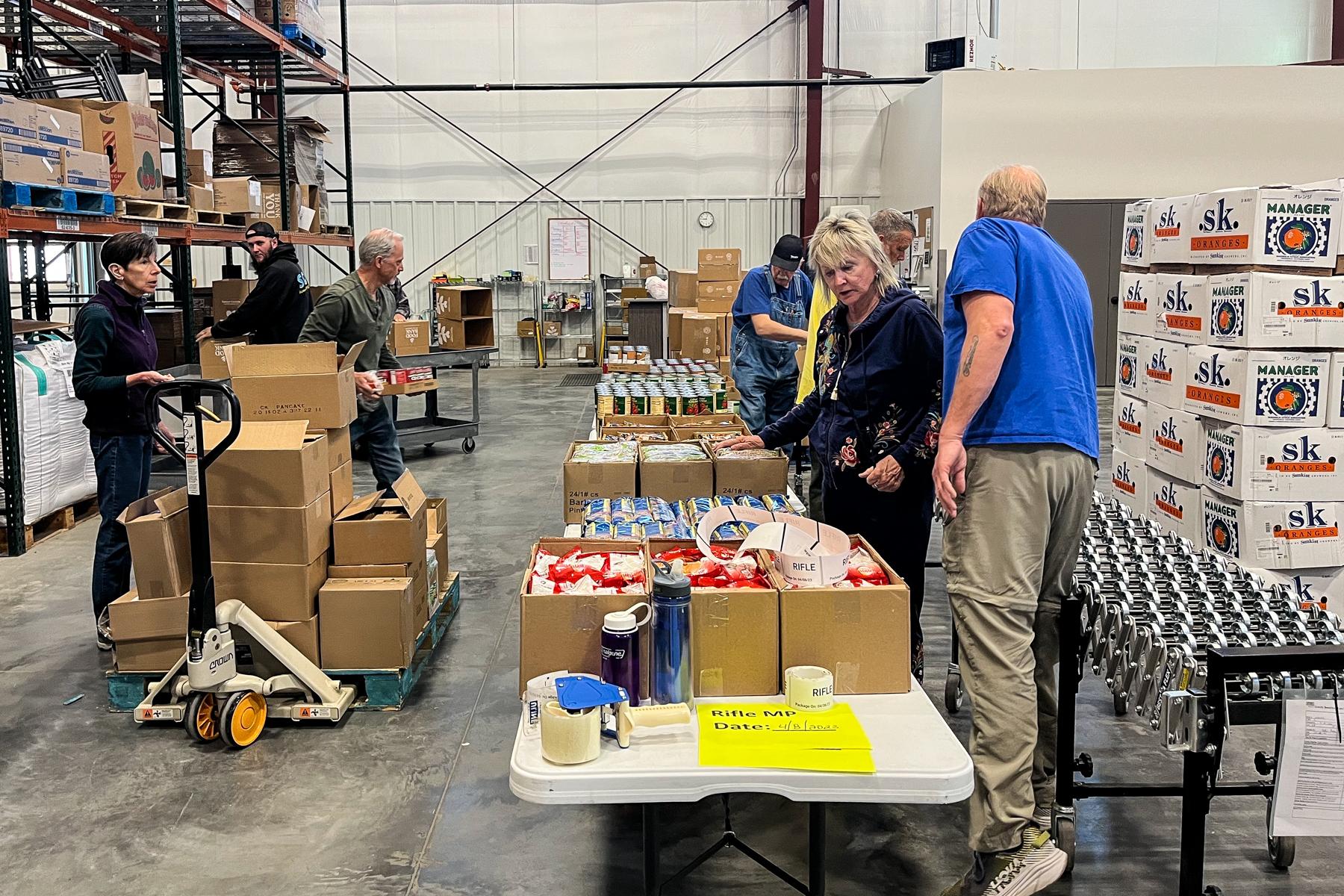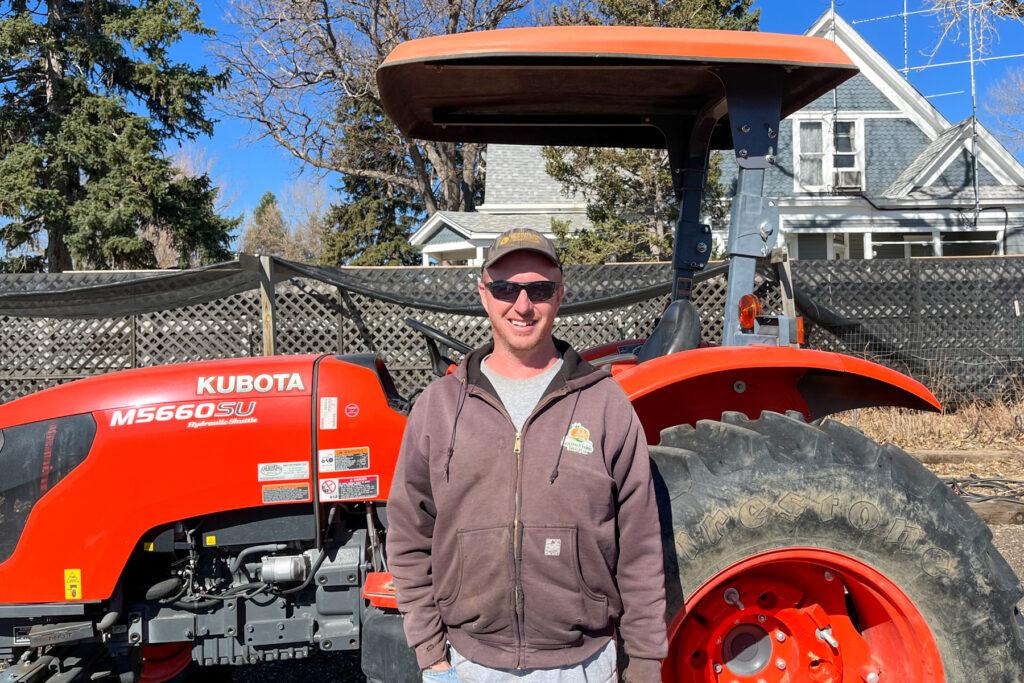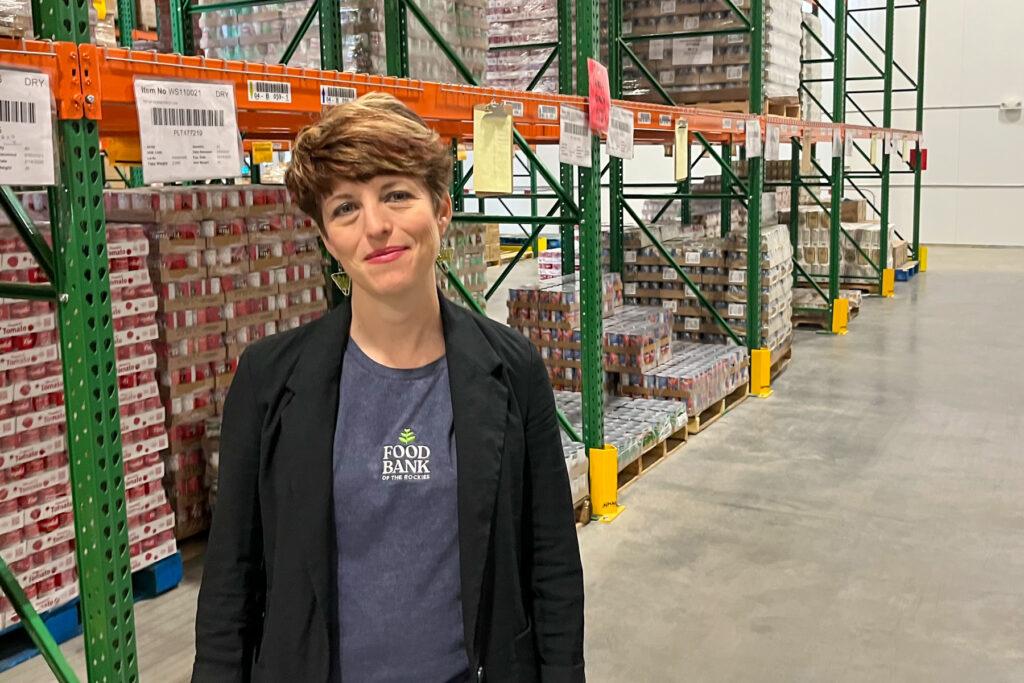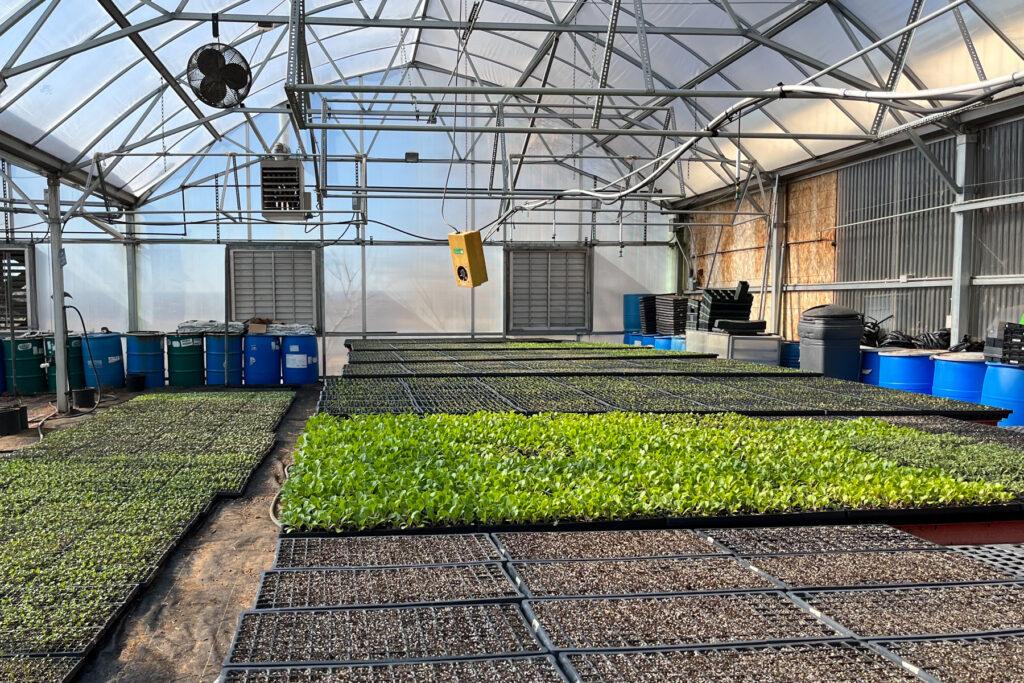
In many ways, Derrick and Hanmei Hoffman are accidental farmers.
“It was my wife's idea,” he said, standing outside their greenhouse in Greeley.
It started with growing food for the family behind their house, expanded to weekend farmers markets and now they own and lease more than 100 acres for their business, Hoffman Farms.
At a Farm Bill roundtable held by Rep. Yadira Caraveo, Hoffman told her that one niche market in particular has helped their farm grow. “We found a really underserved market dealing with food banks, pantries and schools — a lot of that through policies from the Farm Bill.”
The Farm to Schools program, for instance, enabled them to sell to local school districts, especially as free meals in schools have increased.

The Farm Bill is the federal government’s main tool to help Americans dealing with food insecurity. In fact more than 80 percent of the funding in the bill goes to food aid. But clashes over those programs are turning into a political food fight.
As pandemic programs wrap up, questions about the future
On a Friday morning, about a dozen volunteers are packing food boxes at the Food Bank of the Rockies in Grand Junction. Most of them, filled with nutritious, shelf stable items and produce, will eventually be handed out at their weekly mobile pantry about an hour east, in Rifle.
The food bank serves 13 counties in the Western Slope, and since the start of the pandemic it has seen a surge of demand that has not let up.
Food Bank of the Rockies has been able to use the Emergency Food Assistance Program, or TEFAP, to help meet the need. Like many food assistance programs focused on low income families, it’s authorized through the Farm Bill. But these days, the warehouse shelves that usually hold pallets of TEFAP food are looking pretty bare.
“Everyone has to pay more for food, including at the wholesale price. And we’re receiving less TEFAP food,” Western Slope Director Sue Ellen Rodwick explained.
Rodwick got to meet USDA Secretary Tom Vilsack last summer and talked about the Farm Bill. She said it was eye-opening to truly see and hear the full scope of the bill.
“Really when it comes down to it, everyone wants the same thing. We want a way to be able to get food produced and distributed to people who need it, whether they're paying for it or not, in a manner that is efficient, that is understandable, and makes a difference for our neighbors.”

But while farmers and anti-hunger advocates want to see the nutrition title of the bill strengthened, with more funding going to things like TEFAP and SNAP, the program formerly known as food stamps, some members of Congress, especially Republicans, believe it’s time for some belt tightening.
The SNAP fight moves from the Farm Bill to the debt ceiling
Currently people aged 18 to 49 without dependents have to meet additional work requirements to be able to collect SNAP for more than a few months. Those include working or volunteering at least 80 hours a month. There are also waivers for things like pregnancy, physical or mental limitations, or someone under the age of 18 in the household.
House Speaker Kevin McCarthy is pushing for increasing those work requirements. And he’s not alone. Colorado Rep. Lauren Boebert signed onto a letter with Florida Rep. Matt Gaetz called for stricter work requirements for able bodied adults to receive SNAP benefits. (As envisioned, these requirements would apply to only a small percentage of SNAP recipients.) .
The Republican position has an added urgency right now. While Agriculture Committee members have argued the future of SNAP should be decided in Farm Bill negotiations, McCarthy and others insist it must be included in any deal to raise the debt ceiling.

“The work requirements I would prefer would be far more rigorous than 20 hours a week,” Gaetz said on his podcast. “The work requirements that I would demand would have to start in Fiscal Year ‘24.”
Gaetz has talked about a minimum of 30 hours-a-week. Other Republicans have floated the idea of increasing the age limit for work requirements from 49 years old to as high as 65. Boebert, who has talked about her mother using government welfare, did not respond to questions about whether she supports keeping SNAP’s current exemptions or waivers for able-bodied adults, such as having someone under age of 18 in the household or physical or mental limitations.
Rodwick knows what it’s like to be on the receiving end of federal food aid. Years back she suddenly became a single mom, able only to work part-time because she didn’t have childcare. She said many different circumstances can lead people to need food aid.
“They're already working, or they aren't able to work because they're a family with kids, or they're older adults themselves. Actually some have disabilities. So some of the most vulnerable members of our population, they need SNAP. They need that support,” she said.
Rodwick argues receiving food aid does not create dependency. “There’s some people who are there at the regular distribution every time because that’s what they need. But the majority of people, they will get food assistance only when they need it. And so we’re not seeing everyone at every single distribution,” she said.
‘Death by a thousand papercuts’
In March, just over 300,000 Colorado households were getting SNAP payments. During the pandemic the money was boosted to about $370 a month, but with the pandemic over, many recipients will see a big decrease, some to as low as $23 a month.
“Think about the last time you went to the grocery store — what did $23 get you?” asked Lenora Lee Cooper. The 59-year-old is on long term disability due to brain injuries from car crashes. While she thinks she’ll continue to be exempted because of her disability, she’s worried about the future for food aid programs.
“Somebody described it to me… as death by a thousand papercuts,” Cooper said. “We’re not going to eliminate the programs. We’re just going to keep slicing and slicing away at them until there’s nothing left and no one can qualify.”
Democratic Rep. Yadira Caraveo says SNAP is one of her priorities for the Farm Bill. She points out there are already work requirements in place to receive SNAP and other food aid.
“All that this is going to do is put an onerous requirement on people, and really drive a lot of people who need the programs out because they have more important things to do, like work and not fill out paperwork for the government,” she said.
Caraveo, a doctor, said she saw lots of people at the clinic working hard, sometimes at multiple jobs, who still needed help putting food on the table. Compared to her Republican colleagues, she’s going the other way when it comes to SNAP. She introduced a bill that would extend pandemic-era benefits for a year – to give people more time to plan.
“People are still hurting. They’re still trying to put food on the table when eggs are $6 a carton,” she said.
Colorado Senator Michael Bennet also stressed there are work requirements to receive SNAP.
“I think that the work requirements we have have worked and there’s not a reason to change them,” the Democrat said.
Erika Wey, a facilitator with the Food Security Network of Boulder and Broomfield counties, hopes politicians will also recognize the broader benefits of these programs: they help the local economy. SNAP funding is used at local supermarkets and farmers markets, while the Farm-to-Schools program benefits farmers, schools and students.
“it not only helps our economy and local food system, but helps people get back on their feet and pay bills rather than worry about what they're feeding their family,” she said.








